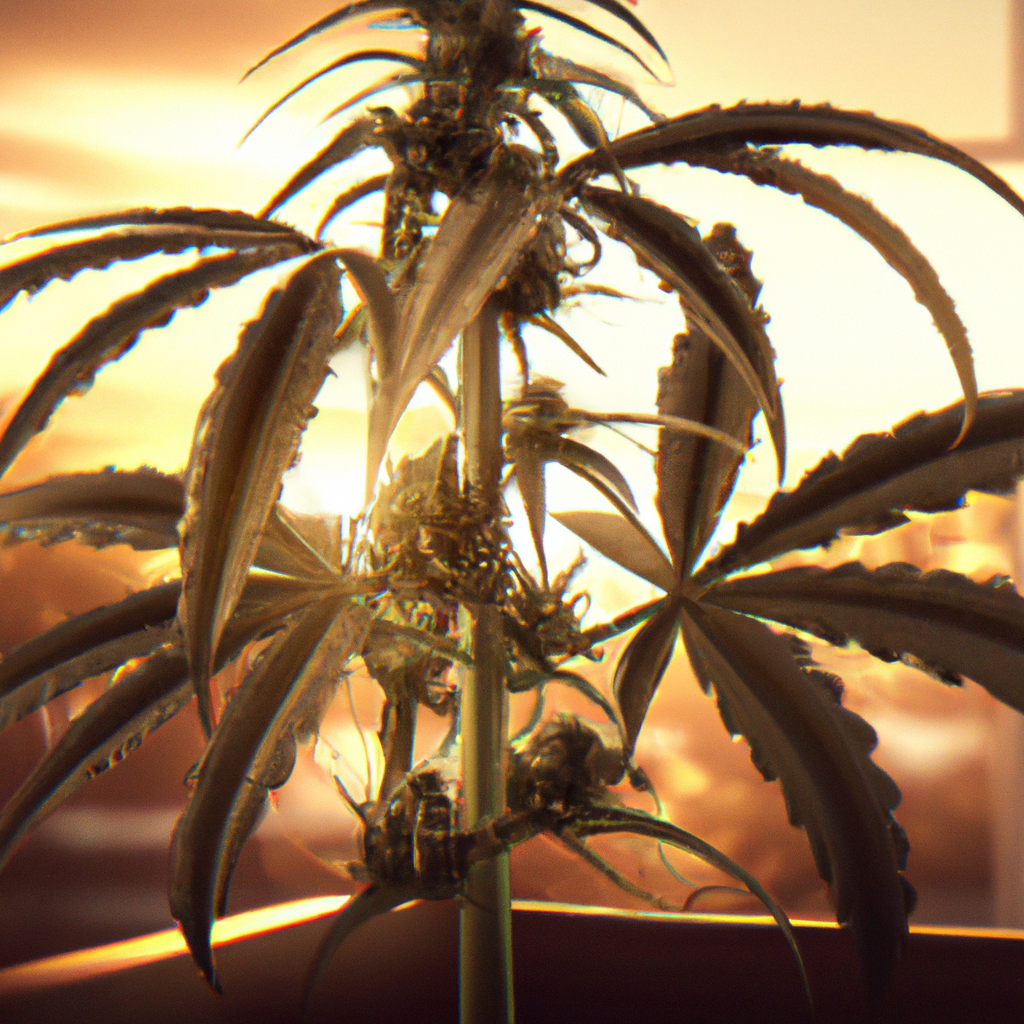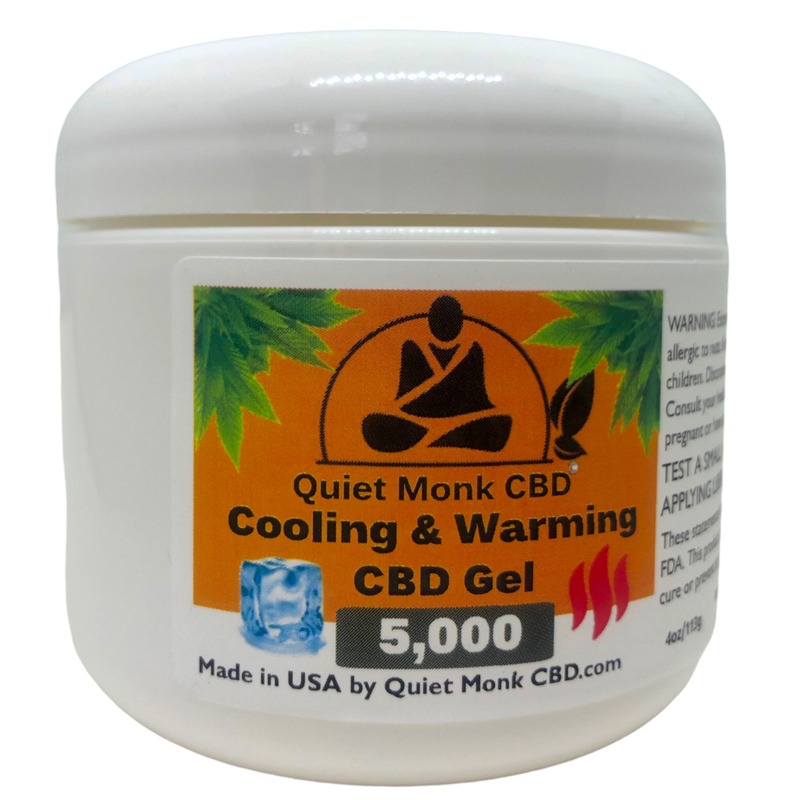
Overview of CBD and THC
CBD and THC are two cannabinoids from the cannabis plant. They can both be used for medicinal purposes, but with different effects on the body. CBD is non-psychoactive and known to have anti-inflammatory and pain-relieving properties. Whereas, THC is psychoactive and causes a euphoric high. It can also provide pain relief and induce appetite, but can cause anxiety in some.
It’s important to note that the two cannabinoids interact with the endocannabinoid system in our bodies differently. This system regulates pain, mood, appetite, sleep and immune function. So, this is why CBD products are more widely available than THC-based ones.
Interestingly, many patients use CBD and THC together for therapeutic reasons. The combined effects offer better relief for symptoms like chronic pain or nausea. There is an example of a woman with multiple sclerosis finding relief using cannabis oil with both CBD and THC. After 3 months of using the oil, she reported improved quality of life and was able to return to work.
In short, knowing the difference between CBD and THC is essential when considering their effects on the body’s pain management system. Similarly, they have medical potentials, but greatly differ when it comes to psychoactivity and how they interact with the body. Think of CBD as the responsible sibling that gives you a massage, and THC as the wild child taking you on a rollercoaster ride.
Differences between CBD and THC
To better understand the differences between CBD and THC, you need to dive into the chemical structure, psychoactive effects, legalization status, medical benefits, and side effects. These sub-sections can help you differentiate between the two compounds and determine which one is a better fit for your needs.
Chemical structure
Discovering the Contrasts in Molecular Makeup.
CBD and THC have distinct chemical compositions. A one-atom difference in their structures results in huge different reactions on the human body.
| Chemical structure | Type of compound | Molecular formula | Molar mass (g/mol) |
|---|---|---|---|
| CBD | Cannabinoid | C21H30O2 | 314.469 g/mol |
| THC | Cannabinoid | C21H30O2 | 314.464 g/mol |
The structural contrast between these two basic compounds changes their effects, whether psychoactive or not. It’s important to grasp each individual structural characteristic.
A study found that CBD has calming properties which could support people with social anxiety issues. (Blessing et al., 2015)
CBD won’t cause hallucinations, but with THC, you may find unicorns on your living room floor!
Psychoactive effects
CBD and THC have different cognitive effects. CBD has no psychoactive properties, meaning it doesn’t get you ‘high’. But, THC does. It imitates brain neurotransmitters and releases dopamine, which can lead to addiction.
Psychoactivity-wise, there’s a difference. CBD doesn’t cause changes to perception or consciousness. On the other hand, THC has intoxicating effects. So, users should be cautious when consuming cannabis with high levels of THC.
Everyone reacts differently to cannabinoids. Even within one person, certain strains and compositions can cause diverse cognitive effects.
Pro Tip: Be mindful of the amount and concentration of THC in your product, to avoid side effects.
Legalizing weed is like finally accepting your parents were right about smoking pot.
Legalization status
CBD and THC legality varies all over the world. Some places let you use both, but some only allow one and ban the other. Canada, Uruguay and a few US states have legalised them. It’s important to know the legal status before getting or using them.
Though both come from cannabis plants, their chemical composition and effects on people are very different. THC gives you a ‘high’ while CBD doesn’t. So, many think CBD is safe without any effect on behaviour.
Marijuana was once widely grown by farmers, but laws were created to stop drug abuse and it’s cultivation stopped.
Say goodbye to Advil – CBD and THC are the new medical power couple!
Medical benefits
CBD and THC possess therapeutic properties that have been researched thoroughly. These cannabinoids provide many medical perks, including pain relief, anti-inflammatory effects, and calming anxiety. They work by interacting with the endocannabinoid system in the body, improving various bodily functions.
CBD is non-psychoactive and doesn’t cause the usual “high”. Instead, it binds to serotonin receptors, which can assist in treating depression and insomnia. On the other hand, THC binds to cannabinoid receptors in the brain, altering one’s consciousness.
Although they share similarities, each compound has its own characteristics that make it better for particular conditions. For instance, CBD is great for reducing epileptic seizures, whereas THC is good for relieving chemotherapy induced nausea.
The NIH conducted a study which showed that cannabinoids are beneficial in handling issues such as chronic pain, multiple sclerosis, and glaucoma.
It’s important to note that balance is key when it comes to CBD and THC – too much of either can leave you in an awkward state while at work.

Here are a few of our CBD topical creams you may find helpful for pain:
Side effects
The impacts of CBD and THC are distinct due to their diverse chemical structures. Although there are resemblances between the two cannabinoids, there are also variations in side effects.
THC is renowned for its psychoactive effect, which can trigger joy, an altered sense of time, and annoyance. In contrast, CBD is non-psychoactive and does not induce visions or intoxication. But, some people may have mild side effects, such as dizziness or lethargy.
Both cannabinoids may lead to dry mouth and increased appetite, but this effect is more often connected with THC use. It’s necessary to be aware that these side effects depend on the dosage and differ with every individual. Pregnant or nursing women should stay away from either cannabinoid due to potential health risks.
Studies are still in progress in order to figure out the therapeutic advantages and possible negative impacts of CBD and THC utilization. Despite the growing approval for cannabis legalization across countries, it’s essential to be aware of the correct dosage and possible side effects.
Fun fact: Ancient Chinese medicine records from 2737 BCE reveal that CBD was used for pain relief while THC was used for anesthesia during surgery! Their relation is more than just alphabetical–they actually share a lot of similarities!
Similarities between CBD and THC
To understand the similarities between CBD and THC, look towards the source from which both of these compounds are derived – the same cannabis plant. In order to explore how these two compounds overlap in their medicinal usage, you can observe that both can be consumed in a variety of forms like edibles, oils, etc.
Both come from the same cannabis plant
CBD and THC are both derived from the same cannabis sativa plant. While CBD is extracted from hemp, THC is found in marijuana. But, they have different chemical compositions and effects due to their unique structures.
Let’s take a peek at some of the similarities between CBD and THC. Here’s a table showing their common traits:
| Similarities | CBD | THC |
|---|---|---|
| Derived from: | Cannabis Sativa | Cannabis Sativa |
| Molecular Structure: | 21 carbon atoms, 30 hydrogen atoms, and two oxygen atoms | 21 carbon atoms, 30 hydrogen atoms, and two oxygen atoms |
| Medical Benefits: | Pain relief, reducing inflammation/anxiety/depression | Pain relief, reducing inflammation/anxiety/depression |
Interestingly, CBD and THC offer similar medical benefits – pain relief for chronic conditions, reducing anxiety and depression, and calming effects. Because they have the same chemical formula, they can be utilized together to get the best results.
Additionally, research has shown that occasional marijuana use doesn’t lead to cognitive decline. So, if you’re looking to relax or treat an ailment, these two compounds are like Batman and Robin – they work better together.
Can both be used for medicinal purposes
CBD and THC have lots of medicinal uses, so they’re popular with customers.
- 1. They can stop chronic pain.
- 2. Help with sleeping troubles.
- 3. Reduce anxiety.
Each one has its own special qualities too. For example, THC gives you that ‘high’ feeling. But CBD doesn’t.
My friend had a car accident and had bad back pain. Medications didn’t help. So she tried CBD and THC products. It worked. She felt better in a few days. No bad side effects.
Whether you want a gummy bear or a dropper, CBD and THC have something for everyone.
Can both be consumed in various forms (edibles, oils, etc.)
CBD and THC are both versatile and can be taken in many forms. Some popular ones include: tinctures, oils, edibles, capsules, and vaping. With these forms, individuals can administer them in different ways, making it easier to take in these substances.
Here’s a table that shows the different consumption methods along with a description:
| Consumption Method | Description |
|---|---|
| Tinctures | Liquids that go under the tongue or added to food/drinks |
| Oils | Concentrated extracts taken orally or added to food/drinks |
| Edibles | Foods with CBD/THC extract, like gummies or brownies |
| Capsules | Gelatin capsules with CBD/THC oil |
| Vaping | Inhaling CBD/THC vapor with a vape pen |
It’s important to note that each method has a different bioavailability rate – how much of the substance is absorbed by the body. For example, vaping has a higher rate than oral consumption methods.
There are also topical creams with CBD and/or THC that can be applied onto the skin.
Though cannabis-derived products are still illegal in most countries, some states have legalized medical or recreational use within their borders. Knowing the difference between CBD and THC is key to learning more and avoiding an unintentional high!
Conclusion – Understanding the differences and similarities between CBD and THC is important for informed usage.
It’s key to have knowledge of the disparities and similarities between CBD and THC for secure utilization. To aid in making well-informed decisions, the following table is presented.
| CBD | THC |
|---|---|
| Non-psychoactive | Psychotropic |
| From hemp/cannabis plants | From cannabis plants |
| Legally OK | Legally not OK |
| No impairment | Can cause impairment |
Aside from these basic disparities, CBD has been studied extensively for its possible health benefits like decreasing inflammation and relieving pain. It’s vitally important to be mindful of these variations before using any cannabinoid material.
Pro Tip: Always consult with your healthcare provider before adding any new substance to your wellness routine.
Frequently Asked Questions
Q: What is CBD?
A: CBD, short for cannabidiol, is one of the many cannabinoids found in cannabis plants. Unlike THC, it is non-psychoactive and does not produce a high.
Q: What is THC?
A: THC, or tetrahydrocannabinol, is another cannabinoid found in cannabis plants. Unlike CBD, THC is psychoactive and produces the high commonly associated with marijuana use.
Q: What are the benefits of using CBD?
A: CBD has been found to have many potential therapeutic benefits, including reducing anxiety, relieving pain and inflammation, and possibly even treating seizures and other neurological disorders.
Q: What are the side effects of using CBD?
A: CBD is generally well-tolerated and does not produce many side effects. However, some people may experience dry mouth, dizziness, or changes in appetite or mood.
Q: What are the benefits of using THC?
A: THC is commonly used for its psychoactive effects, which can produce feelings of euphoria and relaxation. It may also have therapeutic benefits, such as reducing nausea and vomiting, stimulating appetite, and reducing pain and inflammation.
Q: What are the side effects of using THC?
A: THC can produce side effects such as dry mouth, red eyes, increased heart rate, and impaired coordination or memory. It can also cause anxiety and paranoia, especially in high doses or in individuals who are sensitive to its effects.
